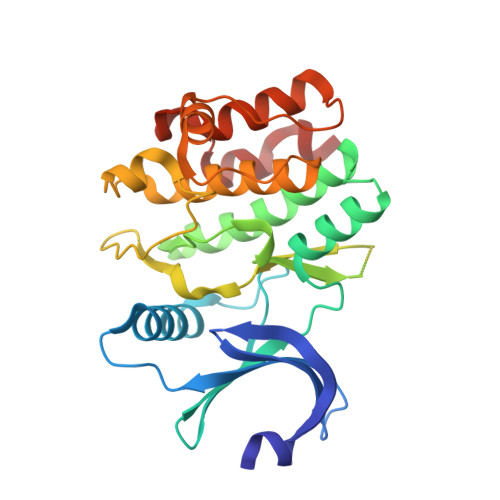Selective Wee1 Inhibitors Led to Antitumor Activity In Vitro and Correlated with Myelosuppression.
Guler, S., DiPoto, M.C., Crespo, A., Caldwell, R., Doerfel, B., Grossmann, N., Ho, K., Huck, B., Jones, C.C., Lan, R., Musil, D., Potnick, J., Schilke, H., Sherer, B., Simon, S., Sirrenberg, C., Zhang, Z., Liu-Bujalski, L.(2023) ACS Med Chem Lett 14: 566-576
- PubMed: 37197456
- DOI: https://doi.org/10.1021/acsmedchemlett.2c00481
- Primary Citation of Related Structures:
8BJT, 8BJU - PubMed Abstract:
Wee1 is a tyrosine kinase that is highly expressed in several cancer types. Wee1 inhibition can lead to suppression of tumor cell proliferation and sensitization of cells to the effects of DNA-damaging agents. AZD1775 is a nonselective Wee1 inhibitor for which myelosuppression has been observed as a dose-limiting toxicity. We have applied structure-based drug design (SBDD) to rapidly generate highly selective Wee1 inhibitors that demonstrate better selectivity than AZD1775 against PLK1, which is known to cause myelosuppression (including thrombocytopenia) when inhibited. While selective Wee1 inhibitors described herein still achieved in vitro antitumor efficacy, thrombocytopenia was still observed in vitro .
Organizational Affiliation:
EMD Serono, Billerica, Massachusetts 01821, United States.















